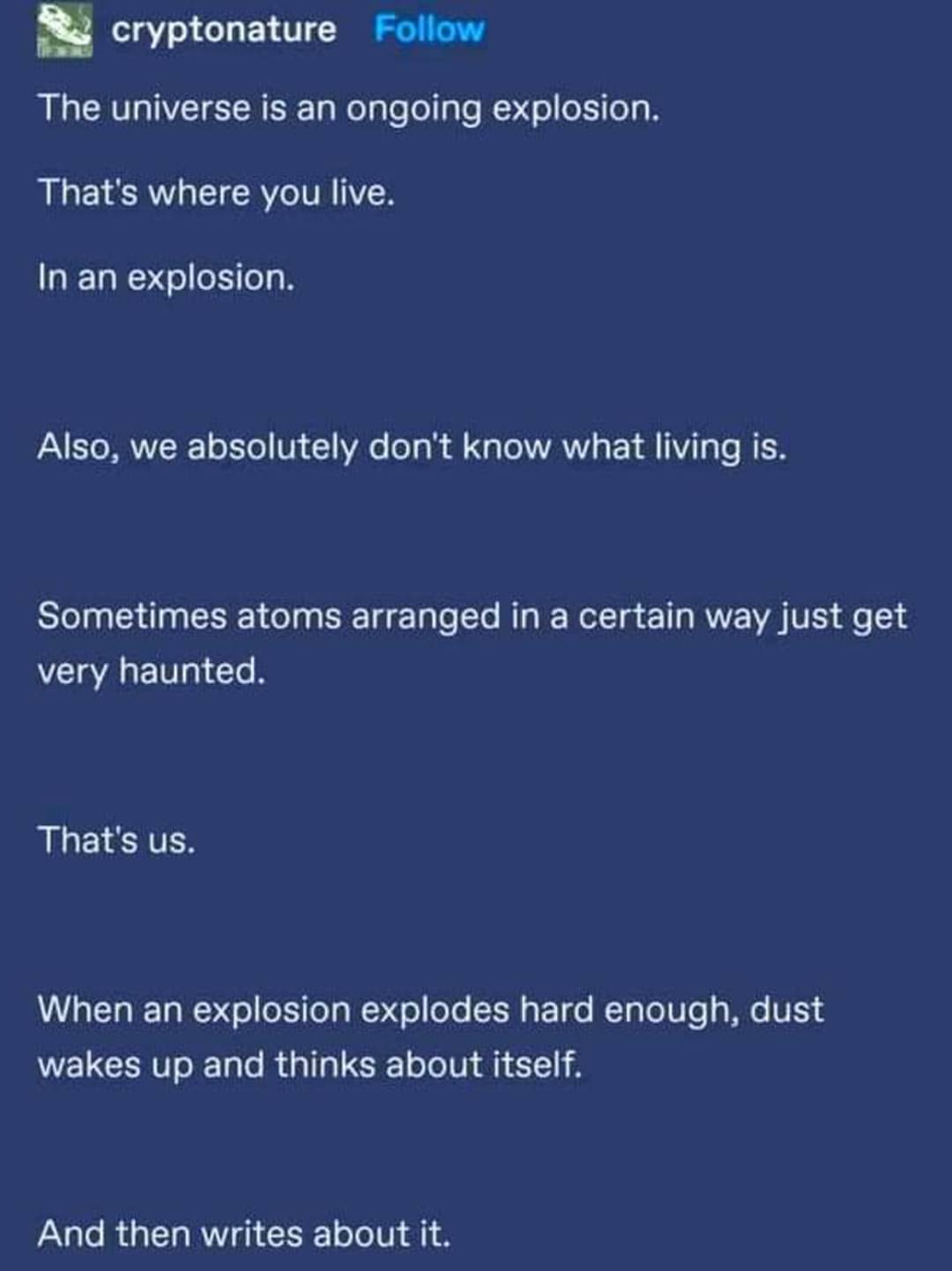this post was submitted on 03 Sep 2024
1409 points (97.6% liked)
Science Memes
11834 readers
145 users here now
Welcome to c/science_memes @ Mander.xyz!
A place for majestic STEMLORD peacocking, as well as memes about the realities of working in a lab.

Rules
- Don't throw mud. Behave like an intellectual and remember the human.
- Keep it rooted (on topic).
- No spam.
- Infographics welcome, get schooled.
This is a science community. We use the Dawkins definition of meme.
Research Committee
Other Mander Communities
Science and Research
Biology and Life Sciences
- [email protected]
- [email protected]
- [email protected]
- [email protected]
- [email protected]
- [email protected]
- [email protected]
- [email protected]
- [email protected]
- [email protected]
- [email protected]
- [email protected]
- [email protected]
- [email protected]
- [email protected]
- [email protected]
- [email protected]
- [email protected]
- [email protected]
- [email protected]
- [email protected]
- [email protected]
- [email protected]
- [email protected]
- !reptiles and [email protected]
Physical Sciences
- [email protected]
- [email protected]
- [email protected]
- [email protected]
- [email protected]
- [email protected]
- [email protected]
- [email protected]
- [email protected]
Humanities and Social Sciences
Practical and Applied Sciences
- !exercise-and [email protected]
- [email protected]
- !self [email protected]
- [email protected]
- [email protected]
- [email protected]
Memes
Miscellaneous
founded 2 years ago
MODERATORS
you are viewing a single comment's thread
view the rest of the comments
view the rest of the comments

Well, as much as possible anyway. When considering mass alone, life is quite efficient.
According to Wolfram Alpha:
The sun produces 3.8 * 10^28^ watts.
A single human produces 104 watts (calculated through the average caloric intake assuming that intake ≈ energy consumption) through heat radiation.
Therefore:
1 kg of human converts 1.5 watt into heat.
1 kg of the sun converts 0.0002 watt into (heat) radiation.
And while I have nearly no understanding how entropy is calculated, from those values alone it seems like humans produce more entropy per kg than the sun. I'm pretty sure entropy is somewhat related to energy production though.
Yes, if you consider just a human-mass equivalent portion of the Sun then it's not doing much, but that's not really a useful comparison. We're talking about total net entropy here, not entropy per unit mass.
But yes, if it makes you feel any better, I'll concede that if you had octillions of people our total metabolic energy output would, in fact, be significantly higher than that of the Sun.
This raises the question of how many kg of human mass is required to start fusion and create a human star? How does fusion even work if you have a mix of different elements? Would the human star pulse in a cycle of collapsing until hydrogen fusion starts, exploding out until it stops and then collapsing again? Or would any fusion ignite enough to stop it from collapsing into a neutron star or black hole?
And if I've asked this question, does it mean xkcd has already attempted an answer? Or at least a comic that mentions it?